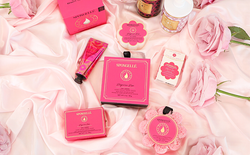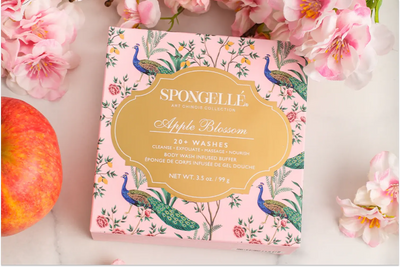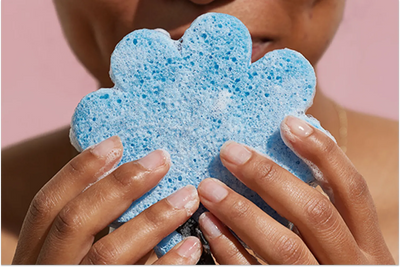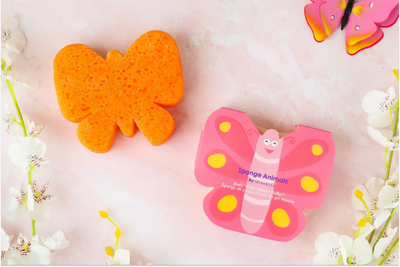Throughout our busy day, we encounter germs in several ways, on a plethora of surfaces. Especially during peak cold and flu seasons, it is important to be extra cautious in eliminating the germs we encounter. These pesky germs can travel from all the things we touch and potentially lead to an illness, which nobody has time for. The best way to avoid these germs is to use proper handwashing techniques or a hand sanitizer containing at least 60% alcohol.
Under many circumstances, an alcohol-based sanitizer can help to rapidly reduce the germs on your hands. Once hand sanitizer is applied to your skin, it works by killing off certain germs. We have all had those days where there is no sink in sight to wash our hands. Hand sanitizer has become a must-have in your purse or travel bag for killing off unwanted germs. Let’s find out all there is to know about why hand sanitizer should be on your list of essentials.
What Active Ingredients Are Important in Hand Sanitizer?
Not all products are as effective as they claim when it comes to properly sanitizing your hands. Hand sanitizers containing a minimum of 60% alcohol are most effective. In both foam and gel sanitizers, you will most commonly find the active sterilizing ingredients isopropyl alcohol and ethyl alcohol.
Alcohol has the ability to dissolve bacteria. For this reason, bacteria won’t become resistant to alcohol and it has been used as an antiseptic for thousands of years. When it comes to ridding your skin of viruses and bacteria, the higher the percentage of alcohol as the active ingredient the better.
How To Use Hand Sanitizer
It’s crucial to understand how to use a hand sanitizer and which circumstances it is most effective. It’s important to note that you should NOT be using hand sanitizer if you have visible grease or dirt on your hands. If you have been camping, fishing, playing outdoors, or gardening, or any other activity where your hands are saturated with grime and dirt, water and soap are highly recommended.
Some examples of times you should use hand sanitizer would be: after sneezing, coughing, or blowing your nose. In those instances, if soap and water are not available you should immediately clean your hands with a sanitizer that is alcohol-based. Frequently washing your hands and using hand sanitizer is a great tool to avoid the spread of germs. When cleansing your hands with hand sanitizer here are some best practices.
First, you will need to apply enough sanitizer to your hands to cover their entire surface. Second, for approximately 20 seconds, or until your hands feel dry, you will rub your hands together. This ensures that you have all of your surfaces covered and that it has properly absorbed into the skin.
Reasons To Use Hand Sanitizer
You may be asking yourself why not just wash your hands. The short answer: sometimes it is completely a matter of convenience. How many times have you been caught in public with not a single place in sight to wash your hands? For us, it happens daily. Here are some benefits of having hand sanitizer on you at all times.
Portability
One of the number one reasons to have hand sanitizer handy is how easy it is to transport. Chances are, you haven’t found a way to carry water, a sink, and soap in your back pocket or purse. The fact that you are able to sanitize your hands on the go is priceless when it comes to protecting your hands from germs.
Eating during your daily grind is a prime example of why having hand sanitizer readily available is important. We can’t tell you how many times we have been commuting and going through the drive-through for a much-needed food break. The last time I checked, even luxury vehicles don’t come with handwashing stations yet. Having the peace of mind of being able to sanitize your hands before you eat is everything when you are constantly on the go.
Microorganism Slayer
Hand sanitizer has the ability to kill many germs on contact. The bacteria on the surface of your skin, or transient bacteria, can easily be removed. When it comes to harmful microorganisms on the surface of our skin we say, slay all day. On the go, it is nice to know that you have a portable option to help get rid of germs.
Sharing Is Caring
Other than your own family, or children, it can be viewed as impolite to tell a perfect stranger to go wash their hands. With hand sanitizer, it can be less awkward to offer some when you are out in public. As a matter of fact, you could be seen as a downright hero for offering hand sanitizer at just the right moment.
Hand sanitizer is a fast and efficient way to ensure everyone around you is practicing the same level of hygiene. It’s quicker than having to walk away and use the restroom and leaves virtually no excuse in doing your part in stopping the spread of germs.
Hydrate and Sanitize
Without high-quality ingredients hand washing or sanitizing can be extremely drying. The last thing you need is dry and cracked skin. Hand Defense Sanitizer is a great example of how all ingredients should work together for the greater good.
It not only contains an impressive 70% alcohol but it also works to protect your skin from free radicals by including vitamin E. This specialized formula doesn’t stop there though. Hand Defense Sanitizer also includes glycerin, which is an essential ingredient in hydration.
Can Hand Sanitizer Expire?
By law, hand sanitizer is required to have a lot number and an expiration date. Over time, the effectiveness and stabilization of products diminish. By industry standard, hand sanitizer typically lasts for approximately two to three years.
Although it is not dangerous, once hand sanitizer has reached its expiration date it is best to discard it. For the most effective hand sanitizing make sure you are checking your labels and expiration dates.
Proper Hand Washing Techniques
It may seem like a no-brainer but as we are already discussing icky germs, and the need to get rid of them, there is a proper way to wash your hands that you should know about. If you do happen to be near a hand washing station, here are steps to proper handwashing.
- Turn on clean running water and wet your hands. The temperature can be either cold or warm.
- Apply soap to your hands and lather by creating friction between them with the soap. Once your hands are nice and bubbly, make sure to include under your nails, between fingers, and the backs of your hands.
- The ideal time to wash your hands is for 20 seconds. Aside from counting to twenty out loud, you can sing the “Happy Birthday” song twice.
- Under clean running water thoroughly rinse your hands.
- You can dry your hands by either air drying or a clean towel.
Summary
Your parents had it right when always encouraging you to wash your hands. What may have seemed like an annoying extra trip to the sink could actually prevent serious illness in the long run. Throughout our day not only are we touching dozens of surfaces but so is everyone else. We know that viral and bacterial germs are spread from something as simple as a touch.
Think about the last time you made a transaction where you had to use a pin pad to enter your pin. Now think about how many people did it before you and how many people will do it after. This is just one example of all the common surfaces we come in contact with on a regular basis. Regularly washing and sanitizing your hands prevents the spread of germs.
If you aren’t able to wash your hands with soap and water, having a hand sanitizer available is the next best option to ensure you are practicing great hygiene habits. Using a hand sanitizer requires no water or other resources. The guesswork is taken out of cleaning your hands quickly and the right formulas even offer hydration.
Other ways you can practice safe hygiene habits are:
- Not touching your mouth, nose, or eyes with unwashed hands.
- Sneezing or coughing into your elbow, or using a tissue.
- If you are sick, stay at home.
- Don’t share your cell phone, cups, or utensils.
At Spongellé we understand the importance of high-quality, effective ingredients. Our hand sanitizers offer you the protection you deserve and are made cruelty-free, vegan-friendly, paraben-free, and sulfate-free. When it comes to killing germs, we’ve got you covered.
Sources:
Hand Sanitizer Use Out and About | Handwashing | CDC
9 Important Benefits of Using Hand Sanitizer|wphealthcarenews.com















